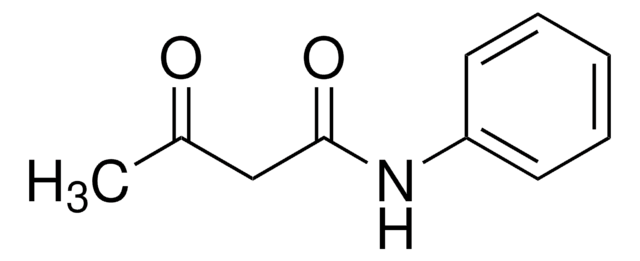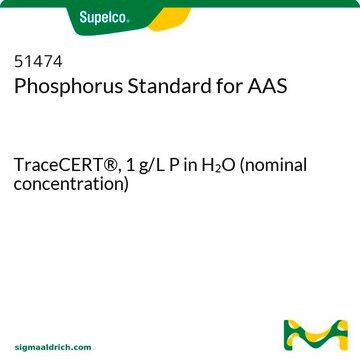About This Item
Recommended Products
vapor density
0.02 (vs air)
vapor pressure
0.03 mmHg ( 21 °C)
1 mmHg ( 76.6 °C)
Assay
≥99.99% trace metals basis
form
powder or chunks
autoignition temp.
500 °F
resistivity
10 μΩ-cm, 20°C
mp
416 °C (subl.) (lit.)
density
2.34 g/mL at 25 °C (lit.)
SMILES string
[P]
InChI
1S/P
InChI key
OAICVXFJPJFONN-UHFFFAOYSA-N
Looking for similar products? Visit Product Comparison Guide
Application
- Recycled Graphite from Spent Lithium-Ion Batteries as a Conductive Framework Directly Applied in Red Phosphorus-Based Anodes.: This study explores using recycled graphite from spent lithium-ion batteries to create a conductive framework for red phosphorus-based anodes, enhancing their performance and sustainability in battery applications (Huang et al., 2023).
- P-Doping a Porous Carbon Host Promotes the Lithium Storage Performance of Red Phosphorus.: This research demonstrates that P-doping of a porous carbon host significantly improves the lithium storage performance of red phosphorus, offering a promising approach for high-capacity battery anodes (Han et al., 2023).
- Laser-Ablated Red Phosphorus on Carbon Nanotube Film for Accelerating Polysulfide Conversion toward High-Performance and Flexible Lithium-Sulfur Batteries.: The study introduces a laser-ablation technique to incorporate red phosphorus onto carbon nanotube films, enhancing polysulfide conversion and overall battery performance (Lee et al., 2021).
- Green, Template-Less Synthesis of Honeycomb-like Porous Micron-Sized Red Phosphorus for High-Performance Lithium Storage.: This paper presents a green, template-less synthesis method for creating honeycomb-like porous red phosphorus, leading to improved lithium storage capabilities for battery applications (Zhu et al., 2021).
Signal Word
Warning
Hazard Statements
Precautionary Statements
Hazard Classifications
Aquatic Chronic 3 - Flam. Sol. 2
Storage Class Code
4.1B - Flammable solid hazardous materials
WGK
WGK 3
Flash Point(F)
Not applicable
Flash Point(C)
Not applicable
Personal Protective Equipment
Certificates of Analysis (COA)
Search for Certificates of Analysis (COA) by entering the products Lot/Batch Number. Lot and Batch Numbers can be found on a product’s label following the words ‘Lot’ or ‘Batch’.
Already Own This Product?
Find documentation for the products that you have recently purchased in the Document Library.
Customers Also Viewed
Our team of scientists has experience in all areas of research including Life Science, Material Science, Chemical Synthesis, Chromatography, Analytical and many others.
Contact Technical Service









